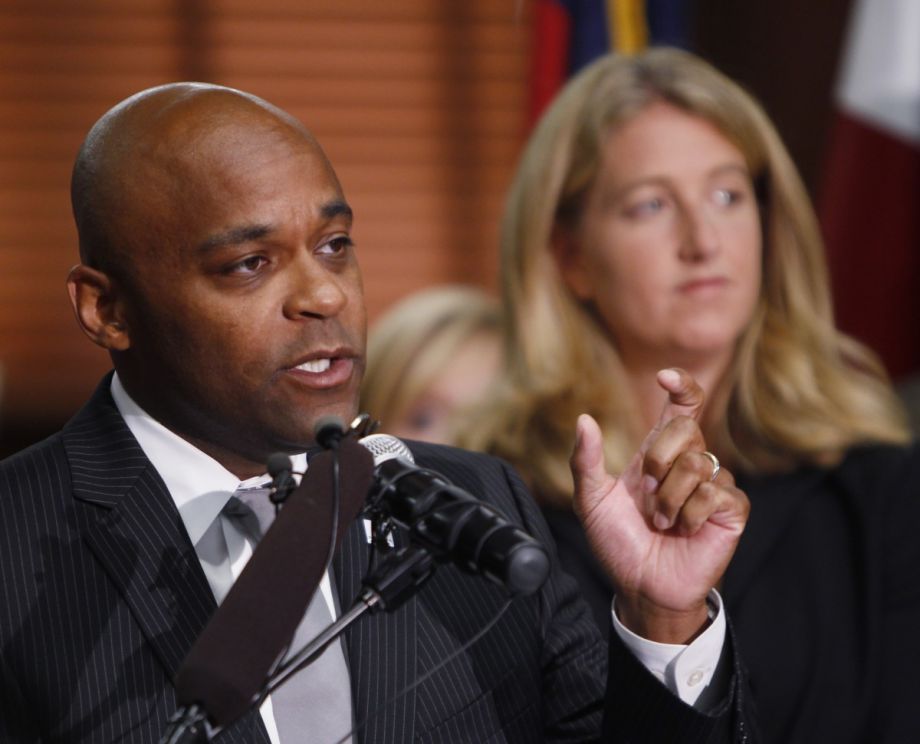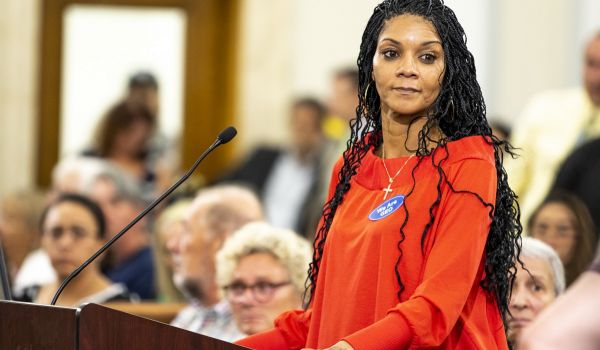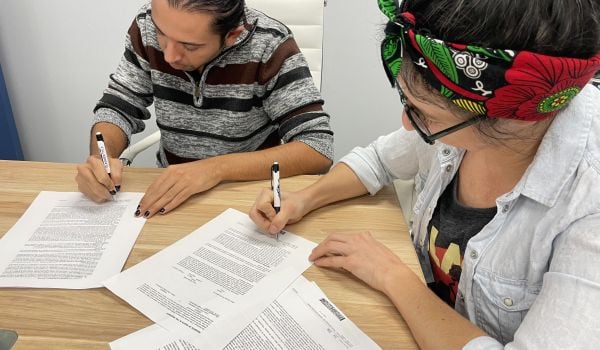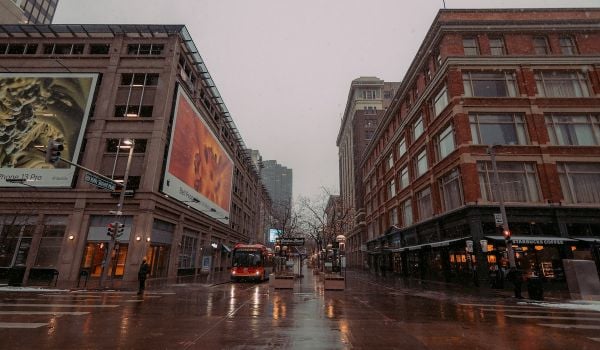Next City is a media partner for the fourth meeting of Clinton Global Initiative America being held June 23-25 in Denver. CGI America is an annual event focused on finding solutions that promote economic recovery in the United States
Denver will today welcome hundreds of leaders in government, business and philanthropy converging downtown for three days of meetings hosted by
Bill, Hillary and Chelsea Clinton through their family foundation. Given Hillary’s recent public focus on rising inequality in the U.S., it is not surprising that big topics of discussion at the Mile High City meeting of Clinton Global Initiative America will be economic mobility, the future of education and strategies for “equitable transformation” of American cities and towns.
It will be the first meeting of CGI America held outside of Chicago, and I talked to Denver Mayor Michael Hancock about why his city is the right spot for the Clinton’s conversation on how to get the American economy on a better path.
Let’s start off with the big question: In your totally unbiased view, why did CGI America pick Denver?
Denver is one of the emerging great cities of the 21st century. We continue to break records attracting tourists and conventions. It is a top destination for millennials as they look for cities that have made a commitment to multi-modalism, a vibrant downtown — the things this generation is looking for in a place to live. This is a place people are talking about and moving to.
Ok. Let’s talk about that commitment to multi-modalism. About a decade ago, in 2004, voters in the Denver region voted yes on a referendum to put $4.7 billion in sales tax revenue toward expanding the region’s light rail system. How is that working out?
Very excitingly. That 2004 vote was hugely important. It has leveraged Denver to build 122 miles of transit rail around the region resulting in more connected communities, transit-oriented development and smarter growth. It’s changing the way we live and do business in the region.
One of the topics of discussion at CGI America is economic mobility. In a recent Harvard study of economic mobility in the 30 most populous U.S. cities, Denver ranked 16th, meaning that a poor child had a better chance of climbing the economic ladder there than a poor child where I live in Philadelphia, but not as good of a chance as a child in places such as San Jose, Seattle or Boston, or fellow energy centers like Houston or Fort Worth. What is Denver doing to improve economic mobility?
Well, the transit initiative is a big piece. We are connecting people to economic centers. Another thing is we have made a commitment to the affordability of housing. As more people move to Denver, we are seeing the market not only rebound, but drive. We need to make sure people can afford to live and stay in Denver. Third, we are committed to a diversity of jobs, jobs that offer a decent standard of living. Finally, let me not forget education. We have a self-tax that has provided some 30,000 children access to early-childhood education. We subsidize based on income, offsetting the cost of high-quality early childhood education.
You mention a commitment to jobs that offer a decent standard of living. Mayors around the country like Mayor Ed Murray in Seattle are raising the minimum wage. Is that something you would support for Denver?
First off, I want to say that a decision like that must be made through the right process. In Seattle, it was a community-based process, he engaged all the sectors before a decision was made. It is an incremental approach. I support Mayor Murray in the process. Denver, on the other hand, doesn’t so much set the minimum wage, but what we are doing is taking into account the cost of supporting a family and if we find alarming disparities, we have to be willing to act and that is why we talk about affordable housing.
I see. More broadly, do you see the people of Denver supporting these more populist strategies that mayors like Ed Murray are putting into place?
All I can tell you is that none of the programs we have taken forward, from the high-quality early childhood education, to the light rail, have moved without public engagement. The pre-school tax was supported at the ballot box. … But to get back to the point about mayors, one thing you watch as you look across the political diaspora is the U.S. mayors are the only ones getting things done. Mayors are really compensating for what D.C. is unable to do. I am proud to be part of the group that is doing what needs to be done. We are leaders and we are stepping up and leading.
And of course, many leaders from across government and private sector are in Denver this week for CGI. What do you hope they take away from your city?
Our penchant for innovation. We have always had a unique twist on things, whether it is the way we have confronted homelessness or the way we built our airport. I hope they walk away thinking about innovation in Denver.
The Equity Factor is made possible with the support of the Surdna Foundation.
Ariella Cohen is Next City’s editor-in-chief.
Follow Ariella .(JavaScript must be enabled to view this email address)
















